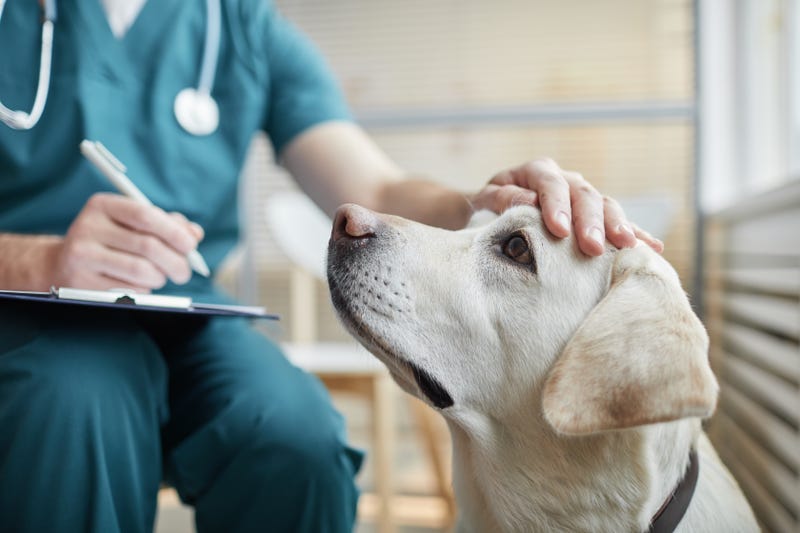
EAST LANSNG (WWJ) - A deadly outbreak seen in Northern Michigan dogs last month may largely be the work of parvovirus, but other severe cases are showing up positive for common diseases, veterinarians say.
While most samples collected on dogs from in Michigan’s northern Lower Peninsula did come back as parvo, Michigan State University's Veterinary Diagnostic Laboratory (VDL) said some severe cases of vomiting and diarrhea in dogs turned out to be routine illnesses.
"While these clinical signs are consistent with parvovirus, there are multiple other causes of severe gastroenteritis in dogs, including other viral, bacterial, parasitic, and protozoal infections," officials said is a prepared statement.
Parvovirus is blamed for taking the lives of at least 30 dogs after it was first detected in the Otsego County Animal Shelter in early August. The lab said the most common disease they diagnosed in samples collected from the sick dogs outside of parvovirus was Giardia, a parasitic species that infects the gut of animals and humans.
According to Veterinary Centers of America, Giardia can be transmitted in dogs by eating or sniffing the cyst form of the parasite from contaminated ground or by drinking contaminated water, such as those found in dog parks.
Dogs infected with Giardia can be treated by a combination of medications prescribed by their veterinarian.
VLD reconfirmed all the Michigan dogs that died of parvovirus were unvaccinated and there is no evidence that current vaccines are less likely to protect against the stain seen in Michigan.
"As noted in previous updates, it is well-established in the scientific literature that point-of-care (POC) tests for parvovirus are less sensitive than laboratory methods like PCR," officials explained as the initial outbreak stumped veterinarians last month when in-house tests came back negative for the disease.
"The MSU VDL will continue to test and characterize additional samples to explore ways POC tests may be improved to enhance sensitivity," officials added.
While MSU encourages veterinarians to submit additional diagnostics in similar cases, pet owners can also take steps to protect and prevent illness in their animals.
Some measures released by MSU are as follows:
-Keep up with routine vaccinations by ensuring dogs/puppies are vaccinated against canine parvovirus, rabies, canine distemper, adenovirus, parainfluenza, and leptospirosis by a veterinarian.
-Have dogs/puppies fully vaccinated before interacting with other animals to keep them healthy and safe.
-Keep dogs/puppies at home and away from other dogs if they are exhibiting any signs of illness and contact your veterinarian.
-Be sure to clean up after your pet when walking in public and don’t allow pets to come into contact with other animals’ waste.
"As a reminder, canine parvovirus is not contagious to people. The disease is common in Michigan, and nationwide, and is not required to be reported to the state veterinarian’s office," officials said.

